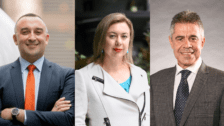Global advice business models on the cusp of change: KPMG
Today’s global advice diaspora is diverse and often unstructured beyond regulatory parameters, but that is set to change according to a new report from professional services giant KPMG.
Buoyed by technology and human advances, KPMG predicts the variance in advice business models will coalesce into just a handful of unique service propositions.
“Today’s diverse, highly fragmented market is likely to converge into three distinct business models,” the firm’s recent Future of wealth management report states.
The most significant change to today’s business models, KPMG explains, is that three business models of the future will be based on serving client needs and preferences rather than focusing on their wealth models.
Currently, the vast majority of global advice businesses segment their customers by their wealth profile (74 per cent), with risk tolerance (61 per cent), age (52 per cent) and portfolio goals (52 per cent) also commonly used.
Instead of tailoring an advice service proposition to a certain band of wealth such as HNW or mass-affluent, KPMG says businesses will morph into becoming a ‘Financial well-being provider’, a ‘Domestic Wealth Manager’ or a ‘Global investment expert’.
In other words, firms will group themselves by service provision rather than other more common metrics like wealth profile or risk appetite.
Financial well-being providers will follow a “relatively simplistic” wealth management model using digitally-enabled solutions, self-service access and innovative products. For these advice businesses, branding will be key to attracting high volume/mass affluent clients.
“Winning firms should combine the best of digital, analytics and the human touch, while also using a scalable, standardized product and service operating platform,” KPMG states.
“Operational efficiency and agility is paramount, responding to evolving customer expectations while driving down costs to maintain a ‘low-cost, high-value’ offering.”
Domestic wealth management models, in the middle of the spectrum, will focus on clients traditionally seen as sophisticated to ultra-high-net-worth. These clients value strong relationships based on personalised, face-to-face contact supported by digital capabilities. Tax-efficiency, family estate planning and investment portfolio insights will be prioritised in a more complex needs environment.
At the top end, global investment experts will focus on the ultra-sophisticated segment, where established brands and international investment reach is paramount. Clients will generally have global investment interests and demand a seamless experience.
“This ‘for the-few, by-the-few’ model has a high barrier to entry, given its level and range of services and relatively high overhead,” the report states.
A common concern across all future business models in the Asia-Pacific, Europe and the US, KPMG adds, will be the search for advice talent.
“Capabilities are becoming a higher priority, including relationship management and specialized, global investment skills. And, with many older professionals set to retire, new talent is urgently needed. The good news is that there’s a wider, diverse talent pool out there, many of whom may not have previously considered a career in the sector.”











